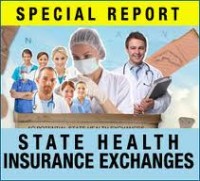 New Orleans Very preliminary reports after the first two weeks of operation of the health marketplace exchanges indicate that state-based exchanges are starting to pick up traction, even as the federal run exchanges are still being delayed by online and other start-up challenges. Early indications are that significant demand is being fueled by the elimination of preexisting coverage requirements. Most figures indicate that applicants are completing enrollment leaving them now with only the choice of insurance carriers. It is worth remembering that when Massachusetts rolled out there similar program, consumers went online an average of 18 times before making a final decision, a shopping process that is now difficult given many of the early technical glitches.
New Orleans Very preliminary reports after the first two weeks of operation of the health marketplace exchanges indicate that state-based exchanges are starting to pick up traction, even as the federal run exchanges are still being delayed by online and other start-up challenges. Early indications are that significant demand is being fueled by the elimination of preexisting coverage requirements. Most figures indicate that applicants are completing enrollment leaving them now with only the choice of insurance carriers. It is worth remembering that when Massachusetts rolled out there similar program, consumers went online an average of 18 times before making a final decision, a shopping process that is now difficult given many of the early technical glitches.
Looking ahead at the evolution of state by state exchanges and thinking about the organizing prospects, such exchanges might offer real opportunity for more aggressive and responsive care for patients with more pronounced regional or local afflictions than has been available under the current private health insurance reimbursement climate. There could be real organizing opportunities to create patient power, if organizers and organizations were able to put the pieces together.
For example ,for years as community organizers we have discussed the terrible incidence of respiratory and asthma related conditions among low and moderate income families in urban areas partially because of the poor condition of housing stock and unhealthy homes, as well as increased concentrated problems from auto and industrial pollution, lead, and other factors. Regardless of the clarity of the issues and the cost of the treatment, the level of our power compared to the distance and leverage on the targets was so extreme that it made successful campaign development seem remote. State health marketplace exchanges bring all of the targets closer and will radically change the pressure points involving the state insurance commission and its commissioner, often ignored in the past, but also elected. Races for insurance commissioner could become heated contests now with increase leverage for patients and organizational voices.
There are certainly other examples already. Victims of Lyme disease, which has serious “hot pockets” in the New England states, have forced action in individual legislatures to require more extensive care and longer reimbursement periods for sufferers, which is critical given the ongoing controversy around the proper treatment regimen which has left victims in many cases unable to get reimbursement for care. Similarly, the responsiveness of the medical and health insurance establishment in places like California or New York during the height of the AIDS crisis would have undoubtedly been much different in a world of state based marketplaces where there were concentrations of patients struggling for their lives. I wonder if the same more localized organizing opportunities might not have also been available for environmentally based health crises like the Love Canals of the country as the targets move within reach and prevention becomes more important and ignoring the afflictions becomes more difficult for politicians.
State health marketplace exchanges may finally allow patients to have voice and power in a different way. The classic organizing dynamic where a personal problem can connect with others to become a political issue may finally be able to find full expression and the kind of results that both change and save lives. There are very few problems more personal and isolating than health, and as organizers we may finally be able to build a bridge to a better place for people.